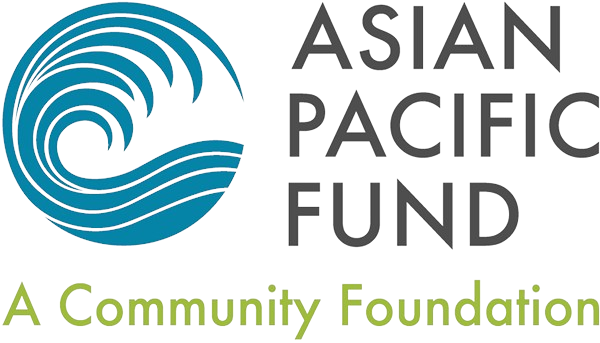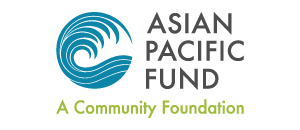Solidarity Fund Grantees
The Solidarity Fund, launched in partnership with Comcast, NBC Bay Area and Telemundo 48, provided grants to organizations working to address the devastating impact of the surge in anti-Asian violence and racism. We distributed two rounds of grants totaling $960K to the Bay Area nonprofits listed below who are doing extraordinary work to meet this moment of need.

GRANTEE PROJECTS & PROGRAMS
AACI — Self-defense and safety trainings, racially targeted scam awareness workshops, and emotional wellness for low-income, limited English speaking and immigrant API seniors.
AAPI Women Lead — Racial solidarity work, educational webinars on anti-Asian violence, cross-racial community-safety online seminars led by community-safety/defense experts, and healing workshops led by BIPOC (Black, Indigenous, and People of Color) healing practitioners.
Angel Island Immigration Station Foundation — Development of animated videos focused on key AAPI moments, events, and people such as Angel Island detention, Executive Order 9066, and Vincent Chin and partnering with schools, libraries, and nonprofits to host virtual and/or in-person roundtable discussions.
APA Family Support Services — Counseling, a stress hotline, and peer support groups for victims and those experiencing secondary trauma resulting from anti-Asian incidents, distribution of safety alarms and hosting worker safety trainings.
API Equality – Northern California (APIENC) — Leadership training for API trans and queer people to develop community-based programs including peer counseling programs run for and by transgender API people addressing mental health needs, holding workshops on community safety, and strengthening relationships with other organizations of LGBTQ and trans people of color.
Asian Americans Advancing Justice – Asian Law Caucus — Presentations of Bystander Intervention Trainings to AAPI serving nonprofits, in partnership with Hollaback!, to share strategies of the 5D’s – Direct, Distract, Delegate, Delay, and Document to empower individuals when they are witnesses or victims of an incident.
Asian Health Services — Racial Trauma Initiative, a solidarity-focused project on racial trauma experienced by Asian American and African American communities, the resulting mental health implications, how to improve health care to these communities, and exploring current experiences and existing problems for potential solutions.
Asian Immigrant Women Advocates — Education and training to Chinese and Nepali immigrants on anti-Asian racism, the civil rights movements, Asian/Black conflict and the importance of working in solidarity with other disadvantaged groups.
Asian Law Alliance — Additional staffing to meet the needs of more AAPI victims of verbal/physical attacks and advise them about the importance of reporting incidents, assist with incident reporting, provide legal options, and mental health support referrals when needed.
Asian Pacific Environmental Network — Collaboration with other community allies to organize and educate community members in Oakland’s Chinatown area to develop messaging to strengthen Black and Asian solidarity, develop prevention-based and community-oriented policies and programs, and support allies planning to restart Oakland’s Chinatown Ambassadors Program.
Asian Pacific Institute on Gender Based Violence — Developing additional resources for survivors of violence, with an emphasis on LGBTQ Asian individuals, including toolkits, webinars, websites, and skills building for community members on intervention, safety planning, and other means of support in situations of gender violence and/or hate violence.
Asian Pacific Islander Legal Outreach — Ongoing multilingual clinics to support AAPI individuals and businesses targeted by anti-Asian hate crimes where they can receive no cost consultations with attorneys regarding their legal options.
Asian Women’s Shelter — In-language community education on AAPI rights, resources and legal options available, alliance-building with Black and Indigenous anti-violence leaders and communities in San Francisco and Alameda counties.
AYPAL — Youth leadership training in community-led efforts to respond to anti-Asian incidents in Oakland Chinatown by strengthening solidarity, particularly between Black and Asian communities, and advancing social justice solutions and narrative.
Bayanihan Equity Center — A pilot program recruiting SoMa residents to form safety patrols to promote public safety, distribute in-language safety tips and kits to the community, and make necessary reports to proper authorities.
Bindlestiff Studio — Escorts for seniors for both errands and allowing them to return to in-person sessions of Restorative Seniors Arts for Theater (ReTAS) Program.
Center for Asian American Media (CAAM) — A series of live, engaging public programs, presented both in-person and online, to highlight the stories, contributions, and resiliency of the local AAPI community and push back on the rise of anti-AAPI hate since the onset of the pandemic, culminating in a public presentation at the 40th anniversary CAAMFest in May 2022.
Chinatown YMCA — Hiring of a facilitator to lead trauma informed/healing sessions for staff members in the API Health Parity Coalition, a coalition of thirty AAPI health-related organizations located in San Francisco, to address their own mental health issues, discuss cultural barriers on staying silent, learn tools on speaking up; to be used as a model when advising AAPI clients to find their own voice in helping them heal.
Chinese Culture Foundation — A collaboration with the San Francisco African American Arts & Cultural District for a “Youth Unity Mural” project advocating for racial justice involving 30 multiracial youths alongside artists to paint a neighborhood mural in the Bayview-Hunters Point district.
Chinese Newcomer Service Center — Education and outreach for safety and crime prevention, safety ambassador patrols, and cultural and etiquette training for new immigrants to avoid conflicts.
Chinese Progressive Association — Phone surveys to deepen understanding around safety concerns in the San Francisco Chinese immigrant community to inform a communications strategy to address growing disinformation, attempts to drive wedges between communities of color, and move people towards long-term solutions to community safety, healing, and cross-racial solidarity.
Community Youth Center of San Francisco — Strategic planning for the Coalition of Community Safety and Justice to increase the collective capacity to create alternatives to safety and justice through building a Chinese American city-wide network of violence intervention and prevention programs, investing in cross-cultural racial and restorative justice programming, and expanding community street outreach programs that connect victims/families of crime to city departments and local nonprofits for culturally appropriate wraparound services in a timely manner.
East Bay Asian Youth Center — A Peace Ambassador program in Oakland by hiring members of Trybe Peace Ambassadors to escort elderly residents resulting in a multiracial, multi-ethnic team of residents building supportive relationships within the neighborhood to foster a safer and welcoming community.
Family Bridges — Conducting general outreach check-ins to seniors at residential buildings and handing out in-language safety/witness bystander information, travel safe wallets, and personal safety alarms at food pantry and hot meal distributions.
Filipino Advocates for Justice — A state-wide and national conversation on Anti-Asian violence through the Asian American leaders table and the Oakland Chinatown Coalition, and also supports healing space convenings for organizers, staff and community members.
Friends of Children with Special Needs — Bystander trainings, safety empowerment training, reporting assistance for victims of crimes, collaborate for racial justice, and referrals for mental health needs.
Gum Moon — Promoting of safety awareness at the San Francisco Chinatown Health Fair, distribution of self-defense kits, two self-defense workshops, two Bystander Intervention Trainings, and conducting mental health check-ins for seniors and parents.
ICAN — A community event for handing out safety information resources and care packages, a group session for Vietnamese seniors and limited English speakers, and distribution of refurbished laptops/tablets to alleviate the social isolation of digitally-under connected Vietnamese adults.
Korean American Community Services — Education and awareness on senior safety, referrals for mental health support, legal assistance, assistance for reporting crimes, food delivery, personal safety kit distribution, and senior wellness check-ins.
Korean Community Center of the East Bay — Developing a video series on engaging seniors for personal safety and self-defense in English, Korean, Mandarin, and Cantonese. Coordinate a Korean intergenerational Angel Island Field Trip to explore family immigration stories, while discussing San Francisco and U.S. immigration policies.
Narika — A domestic violence crisis helpline, safety planning, counseling, legal and housing referrals, support groups, job training, and wellness programs.
Nichi Bei Foundation — Developing Public Service Announcements both in-language and in English to air on national and Bay Area Japanese TV programs, and be promoted via social media increasing awareness of resources available for both counseling and reporting of anti-AAPI hate incidents, with one PSA addressing the importance of solidarity with other neighboring communities of color.
NICOS Chinese Health Coalition — The creation and maintenance of a comprehensive bilingual English/ Chinese online Community Health and Safety Resource Directory addressing anti-Asian racism and violence with information, referrals, and upcoming events in the areas of Prevention, Intervention/Survival, and Recovery to be promoted at the San Francisco Chinatown Community Health Fair.
Oakland Asian Cultural Center — Open E.A.R.S. for Change (EARS), an ongoing program series that prioritizes art, cultural, and humanities activities to focus on social justice issues, particularly around systemic/structural racism, that engages generations and individuals at varying stages of understanding about Anti-Asian Racism, BLM, and Black-Asian community relations.
San Francisco Nihonmachi Community Coalition — Support efforts to address anti-API racism and violence in Japantown and in the Japanese community while strengthening ties with other neighboring communities of color.
Self-Help for the Elderly — Virtual and in-person safety and bystander trainings, special training for seniors with mobility issues, and distribution of assistance mobility devices as needed.
Southeast Asian Community Center — Educational workshops and translated materials for Vietnamese seniors and the community on safety precautions, resources that are available if you become a victim, witness bystander information, how to protect yourself when alone, guidance/assistance in reporting a crime, and mental health support if needed.
Southeast Asian Development Center — Bilingual outreach materials on listing safety tips, a reporting hotline, community resources, supporting escorts for residents and seniors in the Tenderloin district and South of Market districts, translation services, and bystander and safety trainings.
SteppingStone — Food deliveries, mental health support and remote services for frail senior clients who do not yet feel safe leaving their homes because of COVID and/or recent attacks on Asian-Americans. Offering self-defense training workshops for staff as well.
Taulama for Tongans — Ongoing mental health and well-being for isolated seniors by staying connected with weekly Zoom programs and addressing the increasing rise in violence against AAPIs.
Vietnamese American Community Center of the East Bay — Education and outreach materials in Chinese and Vietnamese on senior safety, the importance of reporting crimes, distribution of safety alarms during meal deliveries, and working with Coalition partners in Oakland to educate other communities of color regarding the importance of working together to solve societal issues through non-violence.

